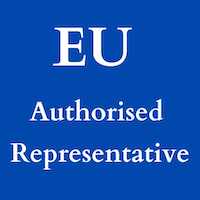Article 20: Regulatory Notes
[vc_row][vc_column][vc_column_text]
Tobacco Products Directive Article 20
An extract of Tobacco Products Directive Article 20 with regulatory notes on paragraphs 1 and 2 is presented below.
“Electronic cigarettes
- The Member States shall ensure that electronic cigarettes and refill containers are only placed on the market if they comply with this Directive and with all other relevant Union legislation.
Note: Other applicable legislation includes Classification of Labelling and Packaging EC 1272/2008, Restriction of Hazardous Substances Directive 2011/65/EU and Waste Electrical and Electronic Equipment Directive 2012/19/EU.
- Manufacturers and importers of electronic cigarettes and refill containers shall submit a notification to the competent authorities of the Member States of any such products which they intend to place on the market. The notification shall be submitted in electronic form six months before the intended placing on the market. For electronic cigarettes and refill containers already placed on the market on 20 May 2016, the notification shall be submitted within six months of that date. A new notification shall be submitted for each substantial modification of the product.
A transition period between May 2016 and May 2017 allows producers to sell through existing stock. Conditions apply. This is only available in a few EU markets. As a general rule, produces should aim to comply with the Directive by May 2016.
The notification shall, depending on whether the product is an electronic cigarette or a refill container, contain the following information:
(a) the name and contact details of the manufacturer, a responsible legal or natural person within the Union, and, if applicable, the importer into the Union;
A non-EU producer is required to have a responsible person located within the EU. This person would be the first port of call for the regulatory authority and, possibly, customers. Country-specific information may mean a local agent is required in the State in which the product is marketed.
(b) a list of all ingredients contained in, and emissions resulting from the use of, the product, by brand name and type, including quantities thereof;
Emissions testing conducted by an analytical laboratory is required on e-liquids and devices. Specialist equipment such as a ‘smoking machine’ is required along with knowledge and experience of testing e-cigarettes.
(c) toxicological data regarding the product’s ingredients and emissions, including when heated, referring in particular to their effects on the health of consumers when inhaled and taking into account, inter alia, any addictive effect;
A full toxicological risk assessment is not required. Details of available toxicological studies is to be submitted as part of the pre-market notification.
(d) information on the nicotine doses and uptake when consumed under normal or reasonably foreseeable conditions;
Full clinical trials demonstrating nicotine dosing and uptake are not required. Nicotine content in emissions should be demonstrated to be consistent (a part of the emissions test).
(e) a description of the components of the product; including, where applicable, the opening and refill mechanism of the electronic cigarette or refill containers;
Technical standards on the refill mechanism apply. Refer to packaging and labelling.
(f) a description of the production process, including whether it involves series production, and a declaration that the production process ensures conformity with the requirements of this Article;
Manufacturing process should be presented in clearly laid out steps (in a way the assessor of the regulatory authority can easily understand).
(g) a declaration that the manufacturer and importer bear full responsibility for the quality and safety of the product, when placed on the market and used under normal or reasonably foreseeable conditions.
Non-EU producers: this may lead to a revision of the contractual terms between the manufacturer and importer in the EU.
Where Member States consider that the information submitted is incomplete, they shall be entitled to request the completion of the information concerned.
Non-payment of the notification fee will result in a delay to the notification process. In some cases, sub-standard descriptions of production process and testing methods may also cause delay.
Member States may charge manufacturers and importers proportionate fees for receiving, storing, handling and analysing the information submitted to them.”
Fees range from around £100 to £600 per notification (with an annual fee). Some Member States do not charge.
Go to regulatory notes on TPD Article 20.3[/vc_column_text][/vc_column][/vc_row]
What We Do
We are a London-based regulatory affairs consultancy providing services to the e-cigarette, cosmetic, biocide, pharmaceutical and medical device industry. We help e-cigarette companies comply with the Tobacco Products Directive and pharmaceutical companies obtain and maintain medical product licences. We also offer UKAS accredited biocide and analytical testing services.

